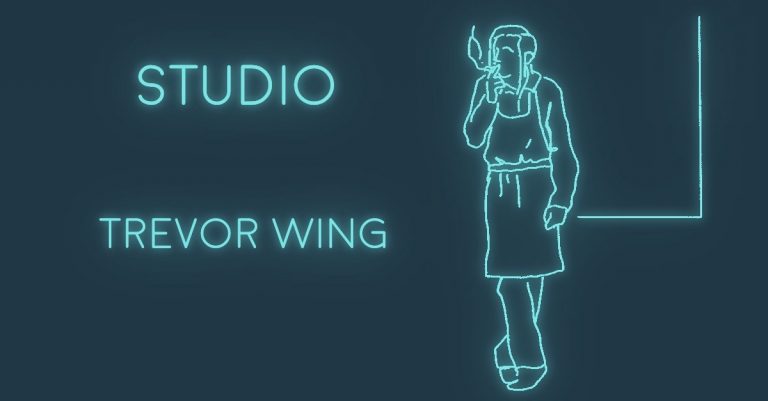
STUDIO by Trevor Wing
We signed a 72 and ¾ month lease for our studio. The market is tough in San Diego.

We signed a 72 and ¾ month lease for our studio. The market is tough in San Diego.
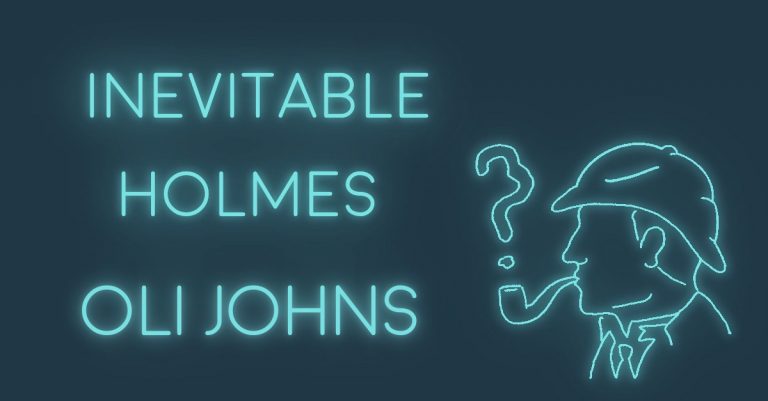
Sherlock Holmes Sherlock Holmes Sherlock Holmes Sherlock Holmes Sherlock Holmes Sherlock Holmes.
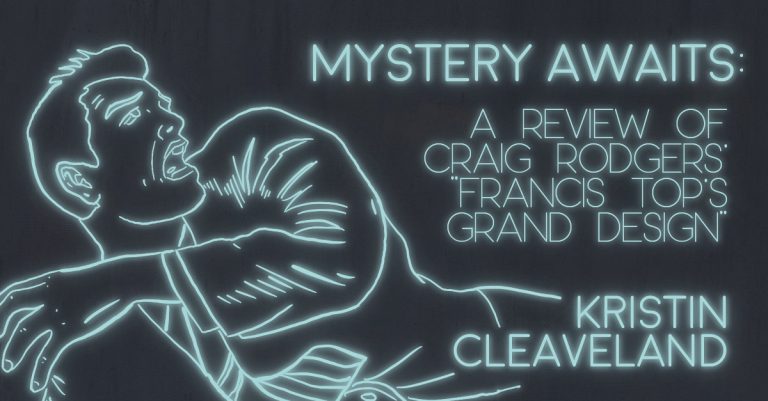
There is an otherworldly quality to many of these tales, a blurring of edges that gives the impression that the stories’ events take place somewhere between waking and sleeping.

Like some unmarried and childless women, she is aloof, arrogant, and easily annoyed. But this takes nothing away from her great charitable contributions.
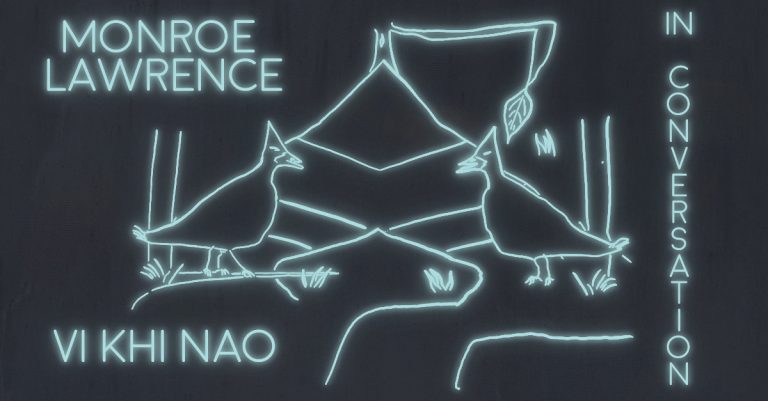
VI KHI NAO: Almond was mentioned quite a few times on page four of About to Be Young. Can you tell me about your relationship with this edible oval nutty thing? When I was in Spain, eating pistachio ice cream for lunch, dinner, and breakfast, the ice cream maker kept repeating “almond,” and “almond” over and over to imply the almond tree growing in the winter months a few hours from Granada. It reminded me of your poem that begins with “Oh God” and ends “crying almond, almond, almond into the night.” Will the poets in my
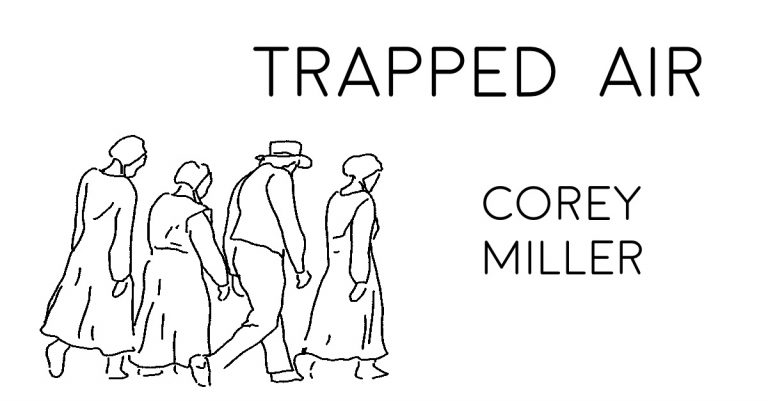
I stand naked at my bedroom window as the community arrives, unhitching buggies next to the barn and freeing their horses within the pasture fencing. It’s Father’s turn to host church. My hands find the tumbled smooth surface of the yellow citrine, amplifying the power of the sun, torrential and vitalizing. My altar, the top of the maple dresser Father built, is aligned with crystals. Each one unique, delivering its effects to the possessor. The dresser stores my bonnets and dresses, different hues of pink and gray. Sundays are always black. None with pockets; Amish don’t believe in secrets. The Radiant Rider-Waite
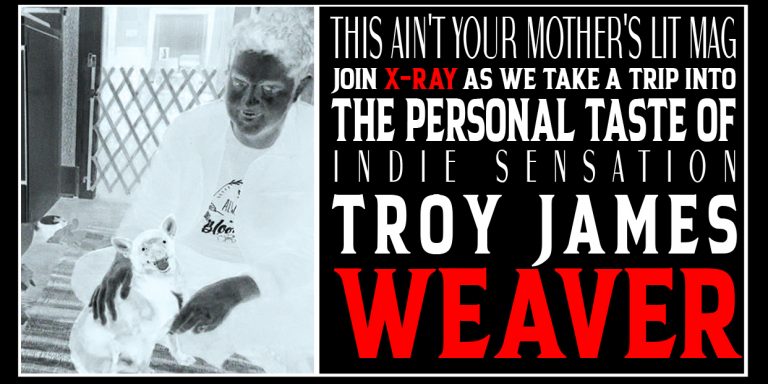
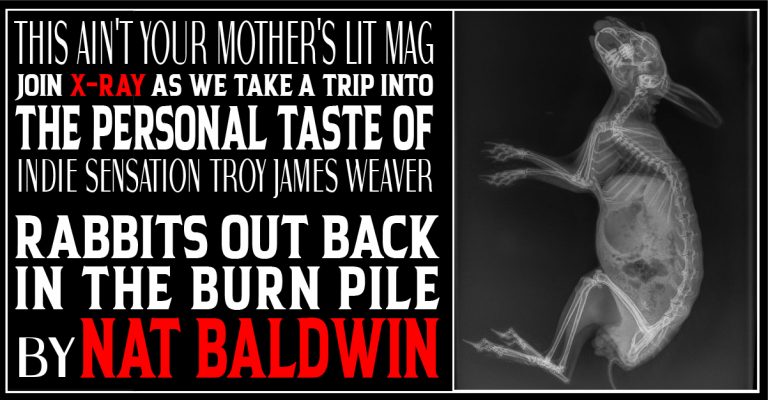
If we found him we dragged him back up the hill into the house. Our faces would burn if we did not do this. Sometimes, even if we dragged him back to where he belonged, we would still get punished.
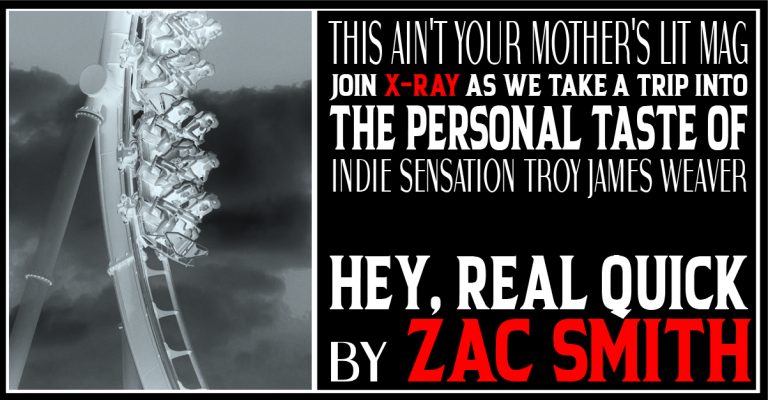
I realized that I could basically live at the Six Flags Great Adventure amusement park in Jackson Township, New Jersey, if I wanted to… So that became the plan… I got there just before nine in the morning… Bought a season pass… The guy at the ticket booth said the season pass meant I could basically come and go as I pleased for the season, which, you know, was several months… So, obviously, yes… Ahh… As I pleased… And I wholly intended to be pleased… Pleased and amused… A whole park dedicated to being amused… Just as I pleased… A

Why waste energy saying you know what I mean in five separate words when you can smush them together and let them fall off the tongue like your drunk ass down the stairs after several bottles of MD 20/20?
